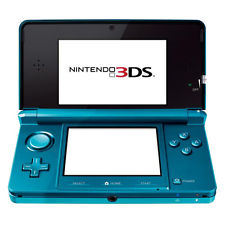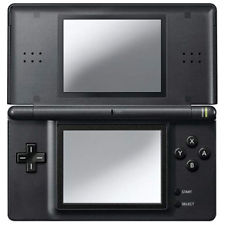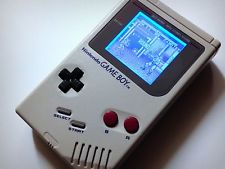|
June 30th, 2013, 00:06 Posted By: wraggster
Putting Nintendo franchises on smartphones would reach more players - but it might be economic suicide in the long-term
Amidst all the speculation and chatter about Nintendo's future, there are moments when it is crystal-clear exactly why the company has been such an intrinsic part of the world of videogames for nearly 30 years. Watching social networks light up with chatter about Animal Crossing: New Leaf - a game which lacks built-in social media functionality yet has provoked more sharing and discussion within my networks than any dedicated social title of the past five years - is one of those moments. At its very best, Nintendo is spectacularly, peerlessly and almost embarrassingly good at making games.
"Here we stand; a niche game launched on a handheld platform which every last ounce of conventional thinking declared dead on arrival two years ago"
In a sense, that is the factor that both drives and negates the often tedious debate over whether Nintendo should abandon hardware and focus its efforts on third-party publishing for mainstream platforms. That the discussion is so long-lived and so intense is a testament to the often unstated fact that Nintendo is not just a platform holder - it is also the most consistently successful and critically acclaimed publisher of games in the world. The unseemly vitriol of the platform wars may blind us to that fact on occasion, but the sheer depth and breadth of Nintendo's software and franchise catalogue is a match to any media company on earth, let alone any game publisher.
Animal Crossing, lest we forget, isn't even considered a top-rank Nintendo game. It will probably outsell most other games this year - Nintendo has, almost uniquely among publishers, mastered the knack of keeping its games selling consistently for months or even years, rather than relying on an initial sharp spike of demand to determine success or failure - yet alongside the likes of Mario, Zelda, Mario Kart and Pokemon, it's considered niche. Here we stand, though; a niche game launched on a handheld platform which every last ounce of conventional thinking declared dead on arrival a mere two years ago, yet I haven't seen such a consistent outpouring of social sharing of a game experience in a very long time. This speaks, of course, to the kind of people who comprise my social networks, yet beyond that I think it also hints at an extraordinary universalism which Nintendo has mastered far ahead of most of its rivals.
So here's the core of the argument - Nintendo enjoys a powerful universalism, an appeal that effortlessly leaps across gaps between demographic groups which seem to be gaping chasms to most other creators. Meanwhile, we've got a pair of new platforms - smartphones and tablets - which are doing the same thing to the world of hardware. Where a handheld game console might hope to sell a hundred million devices in its entire lifetime, Apple sold more than that number of iPhones last year alone, while Samsung's handsets more than doubled that number. Tablets, too, have become a device of choice among a huge range of demographic groups - my own mother, long possessed of the notion that touching the wrong button on a keyboard would cause the internet to explode, has now begun an unsubtle campaign suggesting that an iPad Mini would make an excellent birthday present.
"To switch to third-party development would be handing control of hardware creation to the uncaring whims of companies whose driving impulses have little to do with what makes great gameplay"
A software maker unrivalled at creating entertainment loved by everyone. Hardware platforms which excel at finding their way into the pockets and bags of everyone. It's a match made in heaven, surely? Is there not a sense of inevitability about the next iteration of Animal Crossing being a smartphone game - a sense that a game with such universal appeal is almost wasted by being confined to a platform with such niche appeal?
That sense absolutely does exist, however uncomfortable it may be for Nintendo's traditional fanbase - myself included. Oh, I recognise the discomfort well enough. Logically, rationally, I recognise that there are a lot of bonuses to smartphone gaming, not least that my smartphone is in my pocket all the time while my 3DS - lovely console though it may be - simply doesn't come out with me unless I'm carrying a bag or wearing a coat, which is probably less than half the time. I live in Tokyo, a city where it's altogether more common to see adults playing 3DS games in public than it would be in the UK, but that's still undeniably a factor too. The reality is that even given the obvious downsides of lacking the dual screens or the physical button controls, I'd probably play my 3DS software more if it was on my phone. I owned the superb The World Ends With You as a DS cartridge for many months before finally playing it - when it came out on iOS. And yet, and still... The notion of Nintendo developing for smartphones discomfits me. Something about the notion suggests a loss of the company's purity of purpose, the very thing that has made it so very, very good at what it does.
Traditionalist emotions aside, I think there are a few genuinely valid reasons for that feeling - some of which Satoru Iwata probably had in mind when he said recently that while developing for smartphones would probably make sense right now, staying the course would probably make more sense in the long run. The first and most obvious is that of all the platform holders, Nintendo has been the most successful at integrating its software and hardware development into a single symbiotic process. Software concepts inform Nintendo's hardware creations; its finest game design minds feed their ideas directly into the labs which create its consoles. The extent to which Nintendo's best games fit so snugly with the functionality of its hardware is absolutely no accident. To switch to third-party development would effectively be to throw away that hugely successful symbiosis - handing over control of hardware creation to the uncaring whims of companies like Apple and Samsung whose driving impulses will generally have little to do with what makes for great gameplay.
Great game development talent would survive that transition, of course, even if it lost a little something of its edge along the way. All the same, you are suddenly looking at a Nintendo which must compromise its vision to fit with devices that are fundamentally designed to let people tap out emails and look at webpages on a glass slab, rather than devices designed around the core notion of game interaction. It's not insurmountable, but it's still a blow to the very strengths which have made Nintendo's games great.
"Once you've released a free-to-play Mario and successfully monetised the game, does your audience still love Mario enough to buy the next one?"
The other concern, of course, is the business model. If we're going to talk about Nintendo being a master of universalism, there is very little in the world of games than is more truly universal in its reach than a free-to-play game on a smartphone platform. These games reach out to absolutely vast audiences undreamed-of by the traditional games business, as industry commentators and comment thread trolls are quick to point out at the drop of a hat. A single successful free-to-play game can easily achieve more downloads than an entire successful console platform's installed base. Isn't this where Nintendo's future must lie?
That's a dangerous argument for free-to-play advocates - who have many extremely good points and in whose camp I often find myself - to embark upon, though, because it starts to raise major questions about the value of a customer, or even the very definition of the word "customer". Yes, you may have had 10 million installs of your free-to-play game - but in the modern market, the first response to hearing that isn't "wow, amazing", it's "how much did that cost". Acquiring customers isn't free and making money from them isn't easy. How many of those people pay and how much they pay is another question entirely - and that's not even the toughest question. If you're Nintendo, with franchises in your stable which have been absolutely beloved and hugely commercially successful for three decades, the real question is this - once you've released a free-to-play Mario, reached a huge audience and successfully monetised the game, does your audience still love Mario enough to buy the next one, or have you just served the goose that laid the golden eggs up for a free-to-play dinner? I'm sure that it's possible for beloved franchises to retain their goodwill as free-to-play games - but if I was Nintendo, I'd wait to see evidence of that before committing the family jewels to the chase. (It's no coincidence, I'm sure, that the company's first free-to-play experiment on its own platforms will be a Steel Diver title - obscure enough that nobody will really care if it, ironically, sinks.)
"Nintendo's existing markets may be niche, but they're reliable niches that pay good money for high-quality software"
There's a Catch-22 at work here. Uncomfortable as the notion makes me as a game fan, the problems associated with moving to tablet and smartphone hardware are probably surmountable given Nintendo's development chops. Moreover, it would probably make sense in the end, both commercially and, I admit, from a gaming perspective. I'd play more Nintendo games, joyously, if they sat alongside the likes of Puzzle & Dragons on my phone. However, the Catch-22 arises from the free-to-play issue. I'm an advocate of free-to-play for many games, but Nintendo's classic franchises don't generally fit that profile - which is fine, except that the rise of free-to-play has, inevitably, muddied the waters for premium-priced games on smartphone and tablet platforms. I paid £8.99 for The World Ends With You through gritted teeth, because it was on the App Store, apparently oblivious to the fact that I'd paid £20 for it on the DS previously. Our perception of value on those stores has been forever hammered by the availability of a glut of free software. Don't blame F2P for that; F2P is the sensible reaction to a marketplace where distribution costs have fallen to zero and prices have rapidly followed, but the fact remains that Nintendo faces a tough challenge if it wants to sell premium-priced software in an ecosystem increasingly focused on free downloads.
Ultimately, I think that Nintendo will probably stick to its guns and avoid third-party publishing for as long as it possibly can, precisely because of that Catch-22. Its management would undoubtedly like to put Nintendo games on smartphones right now - they're traditionalists, no doubt, but they're not stupid or unaware of what's happening in the world. Yet even while some companies are making a fortune from the App Store, Google Play and their ilk, Nintendo is quite right to be incredibly wary of the economic factors at work in these marketplaces. Nintendo's existing markets may be niche, but they're reliable niches that pay good money for high-quality software - and if you're safeguarding the greatest treasure trove of IP in the games business, there are times when playing it safe makes a whole lot of sense.
http://www.gamesindustry.biz/article...es-no-new-leaf
For more information and downloads, click here!
 There are 0 comments - Join In and Discuss Here There are 0 comments - Join In and Discuss Here
|
|
 NES
NES










